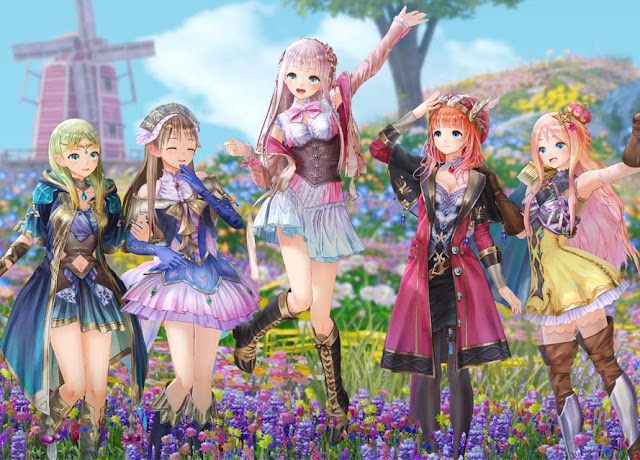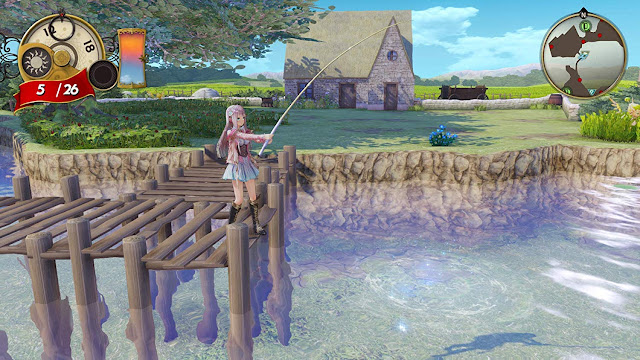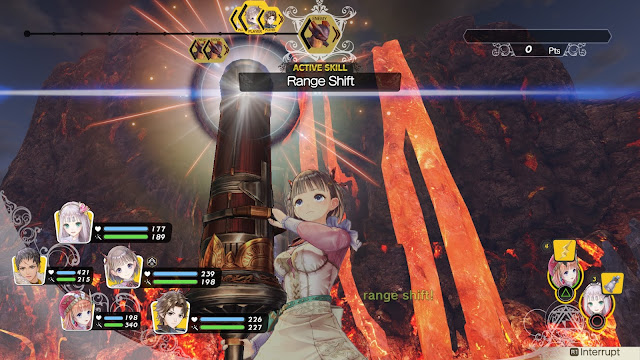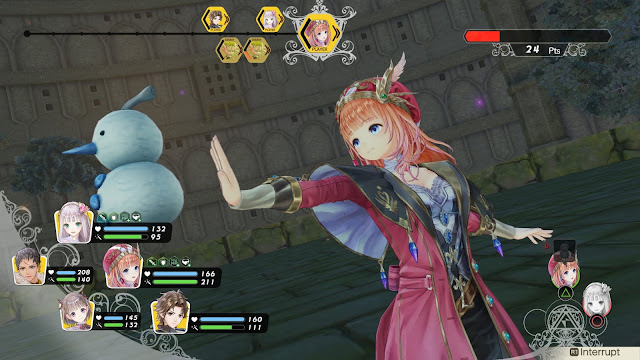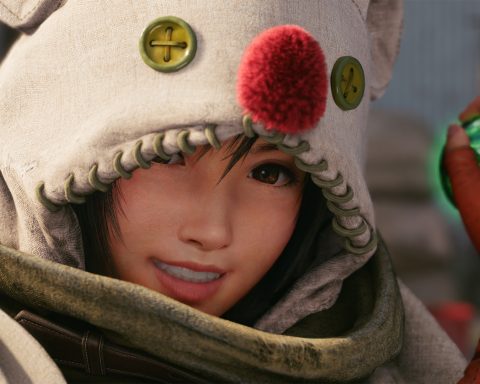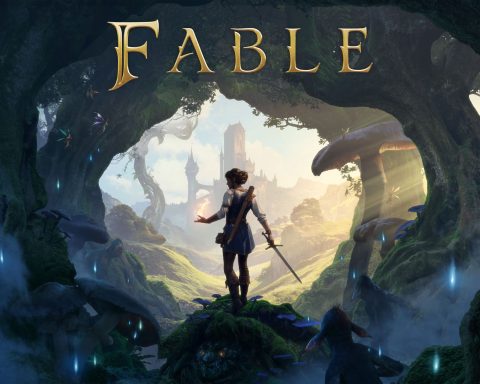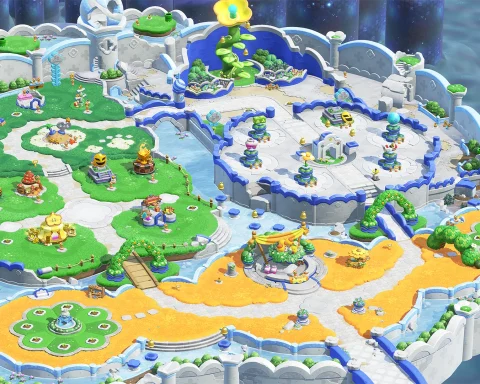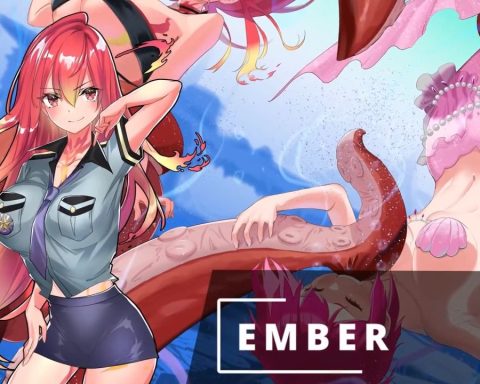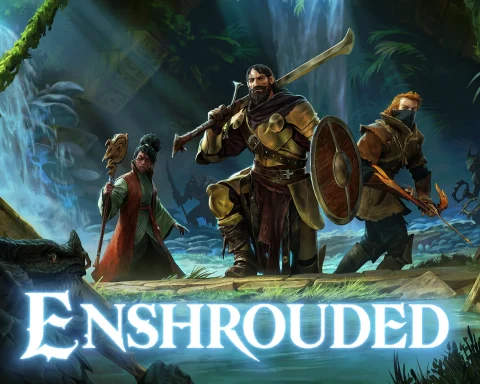Review by Matt S.
Atelier is pure comfort. Gust releases new titles in this series at a truly astounding rate, and Atelier Lulua is actually the second to land in the first half of 2019 alone. It doesn’t matter how frequently these things get churned out though, because they always offer a bright, comfortably light JRPG experience that makes them feel consistently fresh in a video game market where every other developer and publisher fights hard to throw players into the most sickening gorefests or adult contents. It’s nice to have the occasional diversion that is comfortable being clean, happy and good-natured.
Atelier Lulua is especially warming, as it brings us back to the finest chapter in the Atelier series to date to give us a dash of nostalgia to go with the other positive and bright Atelier elements. First released back on the PlayStation 3, and later ported to PlayStation Vita, PlayStation 4 and Nintendo Switch, the Atelier Arland trilogy represents the epitome of what the Atelier franchise stands for. Rorona, Totori, and Meruru – the heroes of that original trilogy – were creations of pure, unfiltered positivity. Each espouses a deep respect for the value of community, and has an earnestness that comes across as naïve, but sweet. It also helped that the girls were also designed by Kishida Mel, a rapidly emerging character artist who creates just the prettiest girls.
After taking a break from Atelier to collaborate with Gust on the sublime Blue Reflection, Kishida and Gust clearly decided to take another crack at Arland, and the result is Lulua, which takes place one generation later on in this world’s history. Lulua herself is marked for greatness – she’s the daughter of the mighty Rorona, a fact that is driven home over and over again for the first couple of hours play. Constantly in her mother’s shadow, Lulua is a rank amateur alchemist that runs around completing little tasks for the village, while absolutely everyone around her is wrapped up in her currently absent mother’s celebrity.
Personally I don’t know how “great” a mother can be when she’s leaving her daughter to play around with potentially dangerous alchemy, and head deep into wilderness areas filled with dangerous monsters to find her ingredients. But then in Japan parents do cede independence to their kids young, so who am I to judge?
I digress. The point is that it doesn’t take long for Lulua to be given her first “real” task, which involves a trip to Arland’s capital, in a journey that mirrors how the second Arland girl, Totori, started her own story. Before getting to the capital, however, Lulua needs to first drop in to princess Meruru’s small city, where the townspeople are so in love with her that they’ve erected statues dedicated to her everywhere. In this way the writers have referenced Lulua’s story back to that of all three previous protagonists, without any of them showing up for even a brief moment. So long as you’ve played an Arland game in the past, however, you’re going to be left in no doubt that you are indeed back in that world, and somewhere other there, all your favourite characters are just waiting for you to bump into them again. What’s more – they’re not new to the world any more. They’re superstars.
The superstardom is important, because it’s through that that we see that Gust has done more to bring something new to the table than I suspect they’re going to get credit for from most. With Atelier Lulua the writers have taken a renewed look at the role that alchemists play in their communities. We don’t meet the superstar alchemists them until much later on, but nonetheless they are idolised to the point that alchemy seems much like Japan’s pop idol industry in the real world. As described by Wendy Xie in an academic paper on the subject of idols: “Anneno Haruna comments that the Japanese idol industry has been manipulating the concept of female innocence –sexual and otherwise — all the time. An idol is almost expected to live in a fairy world like a two dimensional manga character. Her favorite food should be sweet parfait, and her lips have kissed no one. When it comes to their closest people, the standard answer should be “parents.” This certainly describes the role of each protagonist of each Atelier title, and now that Meruru, Totori, and Rorona are all well established as idols, and now it’s up to Lulua start on her own journey to that kind of “wholesome” celebrity. Now, the undercurrent of idoldom has always been present in the series, with good reason. The communities that alchemists touch flourish thanks to what alchemists can produce with materials as simple as a tuft of grass and a pebble, and the alchemists then become central to those communities. It’s not that the alchemists are leaders – Princess Meruru doesn’t even live in her castle, for instance. All these girls are too approachable for leadership, as we generally see it. Just like how, in the real world idol culture, idols need to be available for handshake and up-and-close encounters with fans, in order to demonstrate how accessible they are.
As mentioned, the Atelier franchise has always had that idea as something of an undercurrent theme, but if I were to identify an area where Lulua does distinguish itself from its predecessors, it’s in the way that it brings these idol narratives to the front-and-centre. This is less a story about a standard girl’s coming of age, as the original three Arland games were, and more about the girl’s journey to become a celebrity as those she idolised did in the previous generation.
That’s a subtle shift, but has a consequence to it, in that it takes a very long time for Lulua to really come into her own. I’d go as far as to say the first couple of chapters for Lulua are the worst possible way to start a new story, since as the audience we’re spending most of out time being told how wonderful a bunch of people who are off-screen are. Unless you’re already very familiar with those people, none of what is going on is going to mean much to you. Lulua is merely a doe eyed girl chasing their tails of these off-screen superstars. Consequently, she feels less like a character in her own right than a delivery mechanism for a kind of name-dropping fan service directed at fans of the original trilogy.
Of course, as a huge fan of that original trilogy I was glued to the screen, just waiting for the moment that Meruru, Totori, and Rorona would each show up. The writing is quite teasing here; Lulua dutifully goes on her journey to Meruru’s home city, and walks past the familiar hut where Meruru honed her craft. Lulua herself is incredibly excited to meet with her hero, but only to be told “Meruru isn’t in town right now.” “Oh my”, I thought to myself when I saw that. “That was deflating.” There’s so much delayed gratification going on in this game’s opening chapters. Of course, the gratification does eventually come (and getting to spend more time with Meruru, Totori, and Rorona does not disappoint), but Gust’s writers really do draw the reunification process out as far as they can.
Once the narrative gets through this, Lulua starts to come into her own as a character, too. She’s really quite delightful, and follows trends with the Arland series. Kishida Mel outdid himself with her design, too – she’s gorgeous and playfully fanservicey, in Kishida’s trademark manner. When you look at some of the other “otaku JRPG” artists, like Tsunako, subtlety around the raunch isn’t really a concern. Lulua’s character isn’t overly flesh-revealing in design – the skirt’s short, but there’s no bared midriff or underwear flashes. Wearing a corset on the outside of her costume, though… that was an inspired touch to subtly define Lulua’s chest. Kishida’s art does have a habit of making some people uncomfortable – Blue Reflection, especially, really put people off in the way it drew youth as extreme beauty – but I can’t think of anyone better at what he does. It’s just a pity that it takes so long for Lulua’s personality to catch up this time around.
Atelier Lulua plays out like a classical Atelier title, and after the sharp shift away from tradition and to a simulation-like experience that we saw from Atelier Nelke from earlier in the year, I suspect that traditional approach will come across as a relief for some fans. The world is broken up into little “nodes” that Lulua and friends travel between, each of which is filled with materials to gather up and enemies to defeat. Back in town, those raw ingredients can be mixed into an ever-expanding range of items, with those items being important for completing quests and making progress.
The quality of the items that Lulua picks up along the way is important, both for the overall quality of the finished product, and some of its properties. For example, mixing the right ingredients together will create a more powerful bomb than standard, or imbue a healing salve with secondary beneficial effects. Many of the items that you’ll be producing are needed either to finish requests, or give you powerful equipment to get through tougher battles, so there’s always a tension around what to use your best materials for. Unlike some of the other recent Atelier titles, Lulua keeps this system very simple and straightforward. There’s still enough depth that people that want to create the very best stuff will still be challenged to scour the environment to look for materials, but for those just looking to enjoy the game, not needing to engage with some of the additional systems that other Atelier titles have introduced is definitely a benefit.
Combat, likewise, is kept relatively simple. As with all other Atelier titles, the action is strictly turn-based, and while there’s a large crew you can take with you (consisting of front-line fighters, and rear-row “support”), tactically Gust has kept the action straightforward and clean this time around. Far from a criticism, however, it fits the tone of the game perfectly. What is important is the enemy designs, which are colourful and charming, one and all, and the special attack animations, were are often quite hilarious. Because combat doesn’t drag, and it’s there more to break up the narrative, alchemy and exploration elements, Atelier Lulua’s combat system gets the job done, and is nicely reminiscent of the original trilogy.
The one area that I’ve never been entirely sold on with Atelier is the use of time limits. With most of the entries in the series, time is broken down to a calendar, and you’ve got deadlines to get things done by. Failing to get major projects done on time can really mess with your game – right to the point of the “bad ending” game over. The intention of the Gust team has never been to make people feel like they’re under stressful time pressure, and so the deadlines have always been generous, but nonetheless I know that for a lot of players that find that looming deadlines do cause them a degree of stress. That has always seemed counter-intuitive to intent of the laid back attitude that each title otherwise promotes to me, which is why it’s a good thing that Lulua takes such steps to do away with this system. I wish there wasn’t a damn calendar at all – but I can’t imagine a scenario where players will be stressed out by its presence, buried off in a corner of the screen as it is.
Atelier Lulua’s an interesting one from Gust. On the one hand it’s certainly the most visually impressive and detailed effort we’ve seen from the series to date. Gust has always had limited budgets to work with, but the team has really pushed themselves here to make something that does look very “next gen”. It also plays very cleanly. On the other hand, Atelier Lulua is a very traditional game, and is an effort to bring fans back to trilogy that has had two other full trilogies developed in-between. It’s almost painfully delightful, warm, colourful, and completely charming in everything that it does, but its reliance on nostalgia and series tradition means that I’m just not sure that this will be one to win the series new fans.
– Matt S.
Editor-in-Chief
Find me on Twitter: @digitallydownld
Please help keep DDNet running: Running an online publication isn’t cheap, and it’s highly time consuming. Please help me keep the site running and providing interviews, reviews, and features like this by supporting me on Patreon. Even $1/ month would be a hugely appreciated vote of confidence in the kind of work we’re doing. Please click here to be taken to my Patreon, and thank you for reading and your support!

